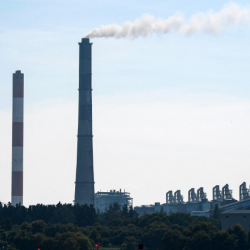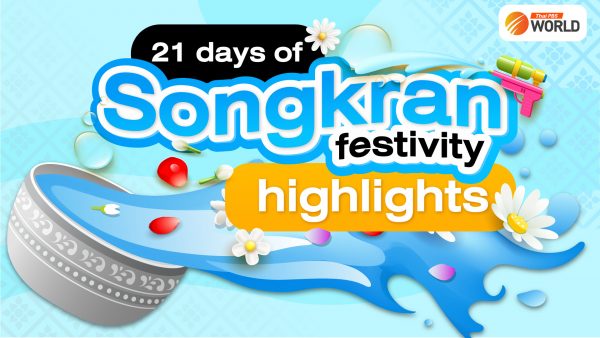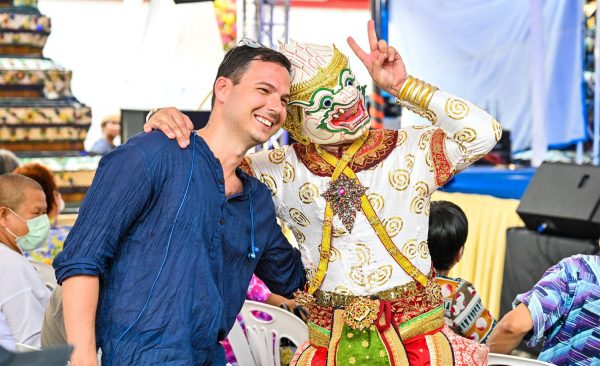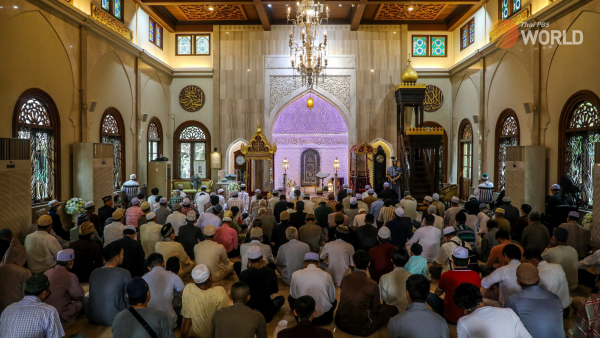Peranakan finery back on centre stage

The Baba wedding ceremony has returned to Old Phuket Town and you don’t need an invitation to join the party.
The traditional Peranakan Chinese wedding ceremony was reinvented in Phuket a decade ago to showcase the cross-cultural beauty and lavish lifestyle of the Peranakan as well as to promote Phuket as a romantic destination. Year after year, local and international couples gather in Old Phuket Town to swear their oaths of love and fidelity.
This year, the Phuket’s Baba Wedding Festival will be held from May 20-22, and it promises visitors a spectacular wedding procession, great food, and much more.
Known as “Baba” for the man and “Yaya” for the woman in Phuket, the Peranakan Chinese are the descendants of Chinese immigrants who married local women in the Malay Peninsula in the fifteenth century.

Instead of Mandarin, the Peranakan – or Straits-born Chinese – spoke a combination of English, Malay, and Hokkien. Men dressed up in western business suits, while the women donned batik sarongs, kebayas, and hand-beaded slippers. They were anglicised and got along well with the colonial settlers. Many went on to careers as bureaucrats or traders. Some became extremely wealthy. The Peranakan have a distinct heritage, culture, and cuisine as a result of their cross-cultural identity.
And the Peranakan wedding is the best way to experience their spectacular culture.
The traditional Peranakan wedding can last up to 12 days and is usually celebrated according to Chinese tradition in the bride’s house. The modern wedding in Phuket, however, will last for only three days.
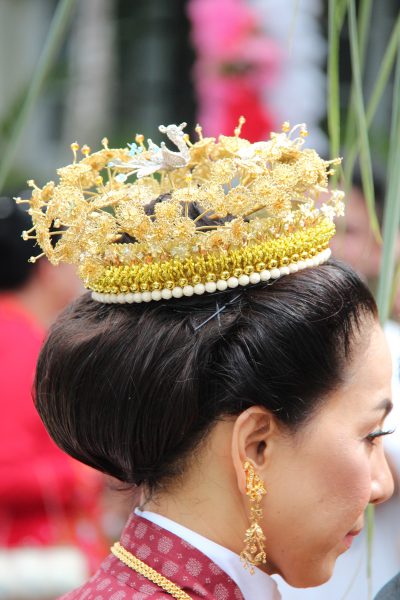
And as at weddings everywhere, the centre of interest is the bride – or in this case, brides – who, with a bridal crown perched on their heads, prepare for the biggest day in their lives in the Peranakan bridal suite. The bridal crown, with tiny flowers made of gold, is said to count as a “sensor” to evaluate the bride’s excitement, as she waits for her groom at her house.
In the old days, Peranakan marriages were arranged by their families through a matchmaker. You can only imagine how the bride felt, as she had never met her groom. The tiny flowers kept shaking, as her heart beat faster and faster.
The highlight of the Phuket Baba Wedding Festival is the procession through Old Phuket Town on Sunday, May 21. Led by the newly-wedded couples, the colourful Peranakan wedding parade will travel through the enclave where Peranakan families still live in heritage Sino-European buildings.
The Baba wedding ceremony will take place on the afternoon of May 21 at the Phuket Thai Hua Museum where visitors can attend the ceremony. The wedding is largely influenced by Chinese tradition, aiming for wealth, longevity and fertility of the newlyweds. Visitors and culture buffs coming to the museum will able to take a close look at the rich and vibrant culture of Peranakans as the wedding ceremony continues with such auspicious activities as the unveiling of the bride and a tea ceremony.
A wedding reception might not be an option for you, but there is another way to experience Peranakan culture. The Old Town Phuket has been designated by UNESCO as a Creative City of Gastronomy. The historical enclave is now home to delicious Peranakan restaurants, many of which have received spots in the Michelin Guide and international media recognition.
Peranakan cuisine is as distinct as the Peranakan people themselves, with a lovely mixture of Chinese and local cooking. Think pork belly stewed with aromatic herbs and spices, or a spicy, coconut-cream soup with noodles. While the newly-wedded couples are planning their honeymoon, you can fete them by treating yourself to wok-fried tiger prawns, Laksa noodles, stir-fried stink beans and more.

If you go
HOW TO GET THERE:
Phuket International Airport is a gateway to the southern island of Phuket.
WHERE TO STAY:
THE LITTLE NYONYA HOTEL (www.LittleNyonyaHotel.com), a charming boutique hotel, is owned and run by a Thai-Peranakan family in Phuket. The Sino-European design evokes memories of the old days and the Two Grandmas restaurant serves both Western and Thai food as well as home-made Nyonya cuisine under the supervision of Ama Tu, an experienced Nyonya cook.
MEMORY AT ON-ON HOTEL in Phuket Old Town was originally established in 1923. Leonardo DiCaprio “slept” here while making “The Beach” in 2000. It has a laid-back attitude, with a stylish bar and colonial charm, drawing young travellers in search of a bed on a budget and rich history.
By Thai PBS World Feature Desk


